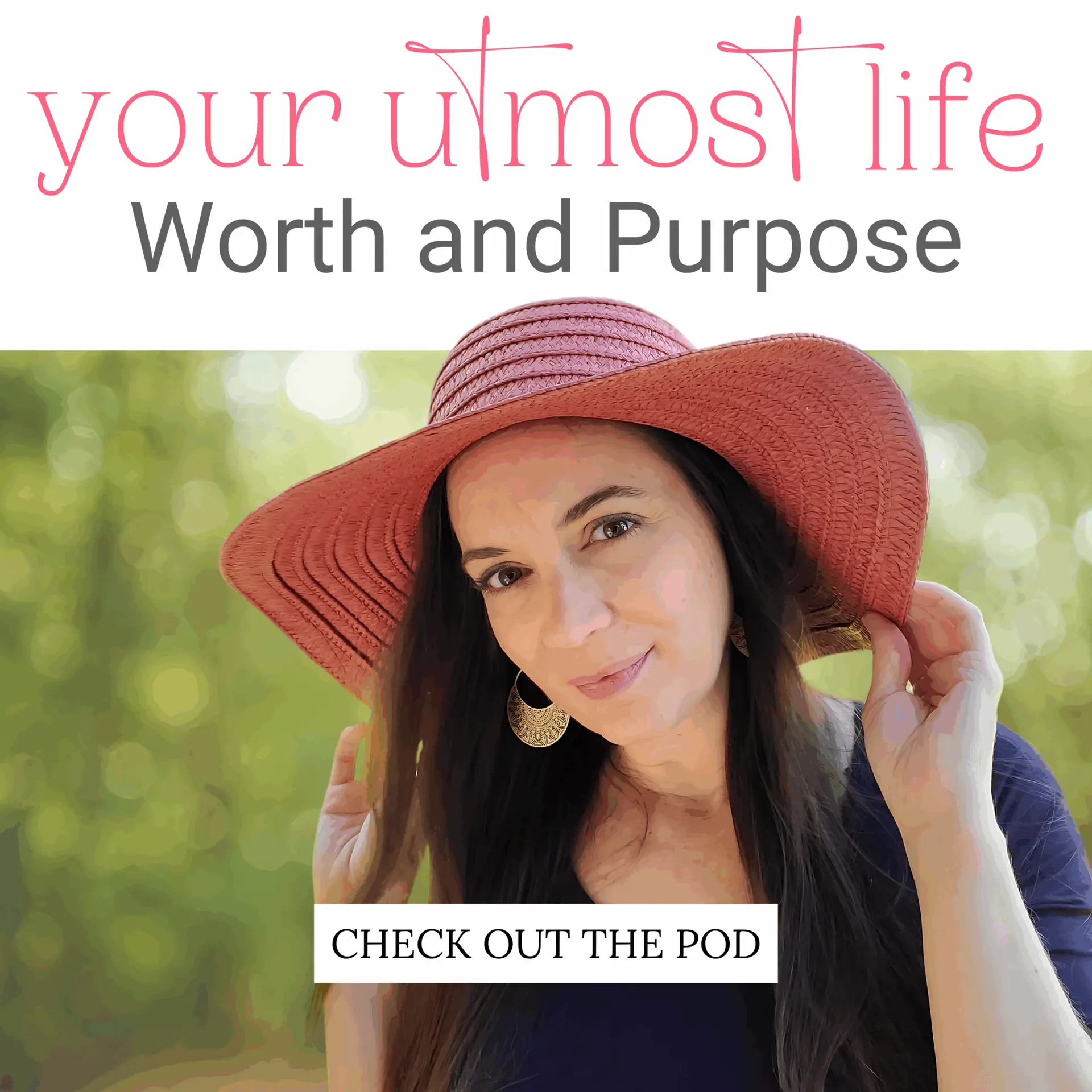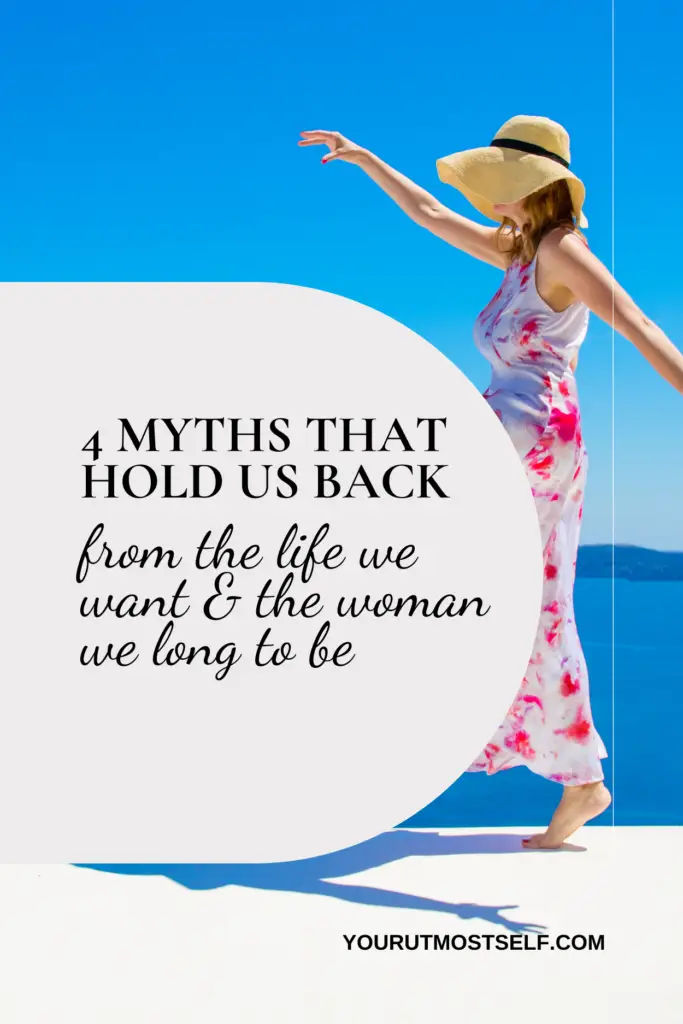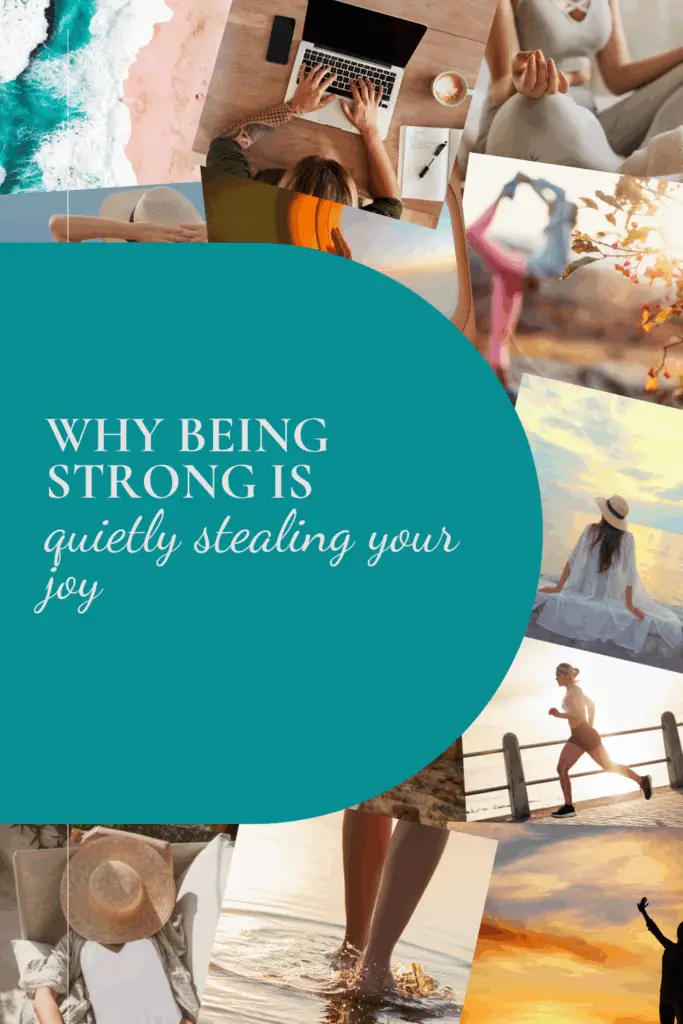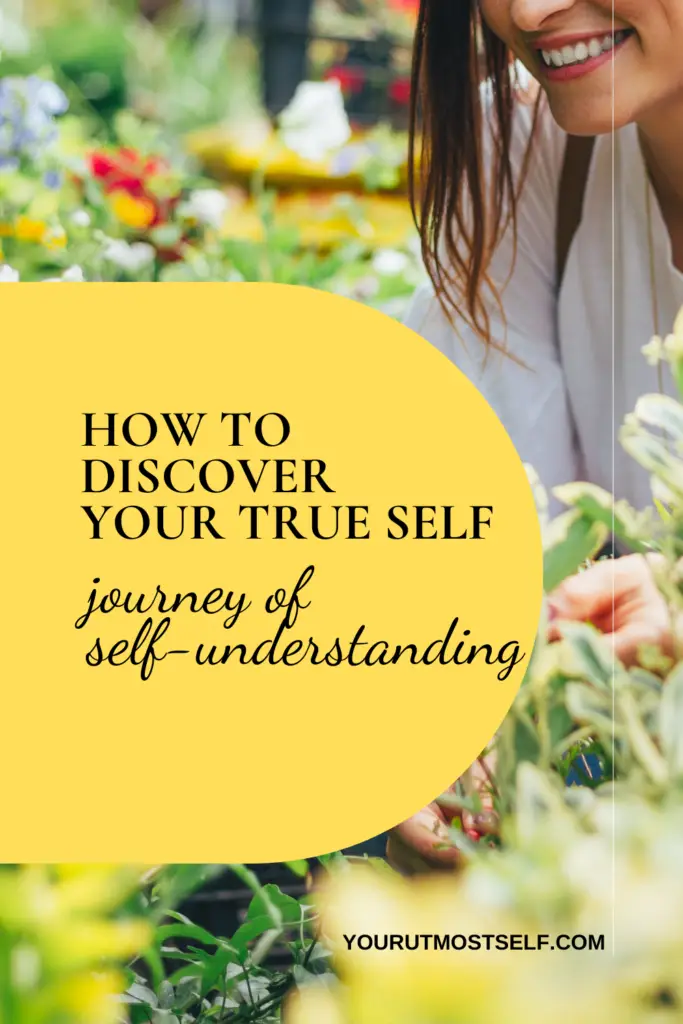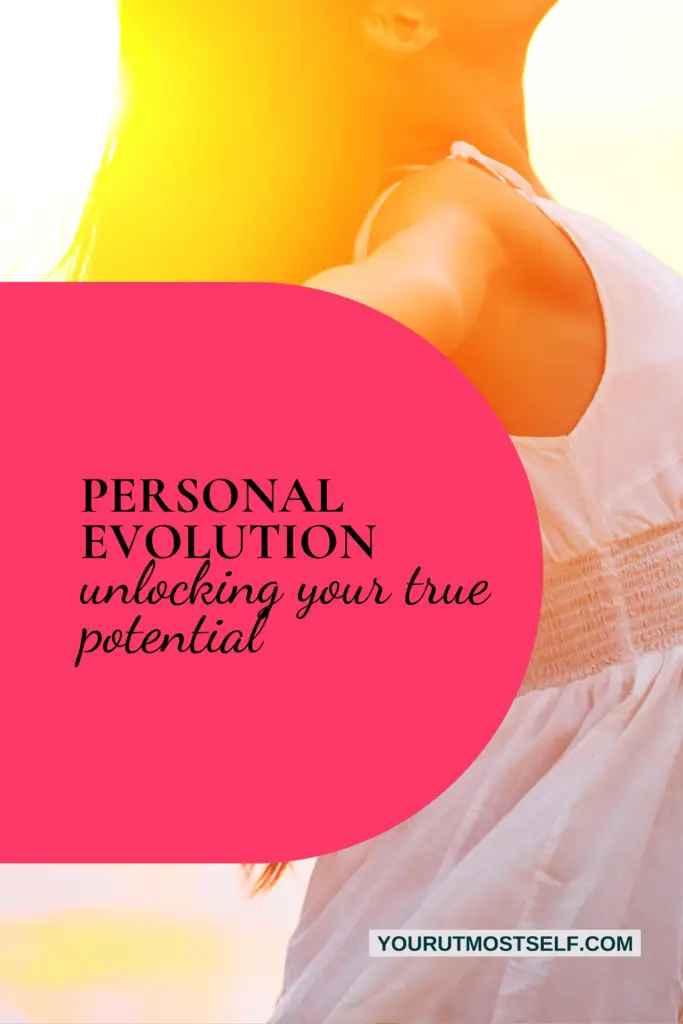I used to believe that seeking help is actually a strength, not a weakness, was a lie and meant I was weak. Or so I thought, that lie kept me stuck—ashamed, silent, and secretly struggling for years. I felt like a failure for not being able to figure it out on my own.
Have you ever hidden a self-help book when someone walked into the room? Or quickly closed a browser tab showing a personal development video? That small moment of shame speaks volumes about a powerful belief that might be holding you back: the idea that seeking help is weakness, not strength.
For years, I lived by an unwritten rule: strong women handle everything alone. This meant not just managing my career and family, but also dealing with personal struggles like anxiety or self-doubt in silence. I didn’t articulate it, but this belief ran everything in my life. I smiled, served, and showed up, all while secretly wondering, “Why does everyone else seem to have it together?” The harder life felt, the more I blamed myself for being unable to figure it out independently.
Today, we’re examining a belief that quietly influences how you show up in every aspect of your life—the notion that needing help equals brokenness or weakness. This invisible thought keeps countless women stuck, isolated, and exhausted. It costs us connection, growth, and the peace that comes from embracing our humanity rather than hiding it.
Understanding Why We Believe Seeking Help is Weakness, Not Strength
This belief—that seeking help signals something is wrong with you—didn’t materialize randomly. We live in a culture obsessed with self-sufficiency. “Pull yourself up by your bootstraps.” “Figure it out on your own.” “Don’t air your dirty laundry.” These messages bombard us from childhood, creating an impossible standard where asking for help becomes equated with failure.
Our society rewards the appearance of strength, not the reality of wholeness. It celebrates the “high-functioning mom” who’s falling apart behind closed doors—yet shames the woman who reaches out for support as if she’s weak. This isn’t strength. It’s survival in disguise.
But what if I told you this belief is actually keeping you stuck? Seeking help is strength, not weakness—it demonstrates the wisdom to recognize when old patterns hold you back.
The Cultural Trap That Prevents Us From Seeing That Seeking Help Is Strength
The belief that needing help reveals brokenness creates a perfect trap: You can’t improve without acknowledging areas for growth, but acknowledging those areas feels like confirming your inadequacy. This cycle is designed to keep you immobilized.
Did you know that 94% of top performers across fields—from Olympic athletes to Fortune 500 CEOs—work with coaches? The people thriving at the highest level aren’t doing it alone; they aren’t avoiding help -they’re strategically seeking it to accelerate their progress and overcome blind spots. Why? Because these leaders understand what we’re learning today: seeking help is strength, not weakness—it’s a deliberate strategy for excellence.
The real weakness isn’t needing guidance—it’s letting pride or fear prevent you from accessing the very resources that would help you thrive. When you believe that needing support makes you broken, you create an impossible standard that no one can meet.
The Personal Cost of Believing Seeking Help is Weakness
Let me share something personal. For years, I maintained what looked like a perfect life from the outside. Career success, marriage, health—all the boxes checked. But behind closed doors, I was drowning in anxiety that I told no one about. I’d wake up at 3 AM with my heart racing, thinking about work situations or family tensions, convinced that if I were “stronger,” I’d handle these feelings better.
I used to hide personal development books under my pillow. Not because I didn’t believe in growth, but because I didn’t want anyone to know I was looking for answers. It felt like a betrayal of this unwritten rule that said I should “already be enough.” The deeper truth? I wasn’t reading those books because I was broken; I was reading them because I refused to stay stuck.
I was fighting for myself. Quietly. Invisibly. Shamefully.
The Hidden Life of Strong Women: Secret Struggles Behind Closed Doors
Maybe you’re doing the same:
- Telling your family you’re going to Target, but really sitting in your car crying.
- Skipping over therapy recommendations because you don’t want to explain to your partner
- Closing tabs on your browser when someone walks by, hiding that you’re reading about anxiety or identity loss.
That small gesture of hiding captures everything about how this belief operates—creating isolation exactly when connection would help us most.
When I finally reached out for support—first through books, then podcasts, eventually therapy—I felt this strange mix of relief and shame. Relief that there were answers, frameworks, and support available. Shame that I “needed” them at all.
That’s what living under this belief does to us. It creates:
- Isolation when we need connection
- Stagnation when we crave growth
- A façade of competence that requires enormous energy to maintain
- Recurring problems that never truly resolve
- Relationships that remain surface-level because we’re afraid to be authentically human
And here’s what’s truly heartbreaking: this belief creates a world where everyone is pretending to have it figured out, reinforcing the illusion that you’re the only one struggling. But behind closed doors, nearly everyone faces challenges they don’t know how to navigate alone.
5 Transformative Practices: Understanding That Seeking Help is Strength, Not Weakness
So, where do we even start when this belief has been running the show for so long? Let’s break it down together. These five shifts will help you embrace growth without shame or guilt—because seeking help is strength, not weakness. It’s wisdom. And it’s one of the most powerful things you can do. Here’s how to embody this truth.
Practice 1: Conscious Awareness—Recognizing Your Patterns
Your healing doesn’t begin with action—it begins with awareness. Start paying attention to the exact moments this belief surfaces in your day-to-day life:
- When does shame whisper that you should “know better”?
- When do you hesitate to ask a question?
- When do you hide that you’re reading a self-help book or listening to a personal development podcast?
- When do you tell yourself, “I’ll figure it out alone”?
This isn’t about judgment—it’s about gathering data. Awareness of the emotional sting or the quiet retreat into isolation helps you recognize that this belief is not you—it’s something you’ve inherited. As you observe these patterns without criticism, you’ll start to see how pervasive this thinking has been and how it’s shaped your choices.
When you can identify the belief in action, it loses some of its invisible power over you. Awareness creates space between you and the thought—space where new choices become possible.
Practice 2: Evidence Portfolio—Documenting Your Growth Journey
If you’ve ever doubted whether reaching out works, it’s time to gather the evidence.
Create a living document—a “Growth Resume”—that captures every instance where seeking support led to positive outcomes in your life. Document the books that opened your eyes, concepts that shifted your perspective, or conversations that created breakthroughs. When your inner critic questions your need for help, this resume becomes your personal counter-narrative to shame.
Alongside this, intentionally seek out role models who normalize continuous learning and growth—people who openly discuss their journeys, challenges, and the support they receive. Follow women who tell the whole story—not just the polished parts. Listen to interviews where leaders talk about their therapists, coaches, and moments of struggle. Read books that center healing, not just achievement.
If all you see are highlight reels and “effortless” success, your belief will remain stuck in shame. But exposure to real, authentic narratives shifts your internal compass. Over time, your definition of “strength” evolves—from self-sufficiency to self-awareness. These combined practices help reset your understanding of what strength actually looks like in the real world, not just in cultural mythology.
Practice 3: Reframing Help—Viewing Support Through a New Lens
It’s time to stop calling it self-help. Call it self-honor.
Transform how you conceptualize seeking support by shifting your language. When you reach for support, you’re not fixing a broken version of yourself but investing in the truest version. Think of it as strategic resource gathering—the same way a CEO surrounds herself with advisors, consultants, and trusted guides. Not because she’s weak, but because she’s wise.
You weren’t meant to carry everything alone. And real success isn’t built in isolation. It’s built in connection.
Explore the roots of your resistance through reflective questions like: “When did I first learn that needing help was shameful? Who modeled that belief for me—and what were their limitations?” This work isn’t about blame but about understanding. Most of us inherited these beliefs from people doing their best with limited perspectives. But we can be the generation that breaks the pattern.
This reframing isn’t just semantic—it’s transformative. When “seeking help” becomes “strategic growth,” everything shifts: your emotions around it, your willingness to engage with it, and ultimately, the results you experience from it.
Practice 4: Graduated Exposure—Beginning Your Journey
Sometimes, we’re not ready to publicize our growth—and that’s okay.
Begin with what I call “Stealth Growth”—accessing resources in ways that feel safe while you’re still working through the shame:
- Listen to podcasts on your walk
- Read quietly, reflect privately
These are not lesser steps. They are wise bridges that lead you gently from isolation into integration.
At some point, visibility becomes part of the healing. Not because you owe anyone an explanation, but because hiding reinforces shame. When you feel ready, try one of these:
- Mention a podcast you’re loving in conversation with a trusted friend
- Leave a comment on a post that moved you
Write in your journal: “What would I want my daughter to believe about asking for help?”
You’ll quickly realize—these aren’t just actions. They are tiny acts of rebellion against a belief that never served you. Each one plants a seed of liberation and gradually normalizes growth as part of your identity.
The key is progression at your own pace. Honor where you are while gently challenging yourself to move forward. Each step makes the next one easier.
Practice 5: Embracing Discomfort—Growing Through Challenge
Pay attention to the language you use with yourself: “I should be past this by now.” “Why can’t I just get it together?”
These are shame scripts—and they sound like voices you’ve heard before. Recognize that the discomfort you feel when seeking help isn’t a warning sign—it’s evidence of growth at the edge of your comfort zone.
Instead of these shame scripts, try this replacement: “This is me choosing healing over hiding. Seeking help is strength, not weakness—it’s wisdom.”
That discomfort when you reach out? It’s not a sign you’re doing something wrong. It’s a sign you’re doing something different—something your nervous system hasn’t yet learned to label as safe. But it will. You retrain your body and beliefs with every courageous step to see help as valuable and necessary.
Growth doesn’t happen inside the comfort zone. It happens at the edge—where the shame gets loud and your choice to move anyway becomes the most powerful act of self-honor you can make.
What Becomes Possible When You Embrace That Seeking Help is Strength
Imagine what your life would look like if you completely reversed this belief—if you viewed seeking help and continuous growth not as signs of weakness, but as the ultimate expressions of strength and self-respect.
What becomes possible when you’re no longer exhausting yourself maintaining an illusion of having it all figured out? Which relationships might deepen when you allow yourself to be authentically human with others? What persistent challenges might finally resolve when you access the right support?
When you shift this belief, you:
- Experience the profound relief of authentic living rather than constant performance
- Form deeper connections based on genuine sharing rather than curated impressions
- Access tools and perspectives that resolve long-standing challenges
- Model healthy behavior for your children, partners, and community
- Redirect the massive energy previously spent hiding struggles toward actual growth
- Discover strengths and gifts that were obscured by shame and isolation
- Begin making decisions from wisdom rather than fear
The truth is, we’re all works in progress. Every single human being on this planet is figuring it out as they go, facing challenges, and learning through experience. The most fulfilled people aren’t those who need the least help—they’re those who are wise enough to seek it, brave enough to apply it, and generous enough to share what they learn with others.
When you embrace this truth, you don’t just transform your own life—you become a permission-giver for others. Your willingness to be authentically engaged in growth creates ripples that extend far beyond your personal experience.
The Surprising Paradox: How Seeking Help Makes You Stronger
When this belief begins to loosen its grip, many women discover a surprising paradox: they actually become more resilient, not less. By allowing themselves to receive support, their internal resources expand. They develop a toolkit of personalized strategies for life’s challenges. They experience more energy because they’re no longer exhausting themselves with the work of hiding and proving.
In relationships, this shift creates space for deeper intimacy and honesty. For parenting, it allows you to model healthy vulnerability and emotional intelligence for your children, perhaps breaking intergenerational patterns. In your career, it might mean being willing to delegate, seek coaching, or release over-identification with achievement.
Your health—both physical and emotional—often improves as you address needs earlier rather than waiting for a crisis. Your sense of connection may deepen as you release the need to appear perfect and embrace your full humanity.
Consider this: What is the alternative? A life defined by avoidance rather than engagement. Relationships limited by performance rather than connection. Challenges that persist because pride prevents their resolution. Is that really the legacy you want to leave?
The most powerful question you can ask yourself is this: If seeking help is strength, not weakness, how might that change the decisions you make starting today?
Seeking Help is Strength, Not Weakness: Rising Through Connection
We began by discussing those moments when we hide a self-help book or make excuses about therapy—small but significant ways we perpetuate the belief that needing help means we’re somehow broken or weak.
But as we’ve explored together, the truth is powerfully different. Your willingness to seek growth, to learn continuously, and to gather resources for your journey aren’t signs of deficiency. They’re expressions of self-respect, courage, and wisdom. They reflect not who you are now but who you’re committed to becoming.
The strongest people aren’t those who never struggle—they’re those who face their challenges directly, with all the support they need. They understand that humans weren’t designed to figure everything out in isolation. We were made for connection, for learning, and for continuous evolution together.
So I invite you to make one slight shift this week: Notice when shame about seeking growth arises, and gently remind yourself, “Seeking help is strength, not weakness—this is wisdom.” Perhaps choose one area where you’ve been struggling alone and take one small step toward getting support, whether through a book, a conversation, or professional guidance.
Remember, your willingness to grow isn’t evidence of brokenness—it’s proof of your courage and commitment to living your most authentic life.
And that begins when you stop asking, “What’s wrong with me?” And start asking, “What if I’m not broken—but buried under beliefs that never served me?”
You are not too much, you are not too late, and you are most certainly not weak.
You are rising.
Ready to take your first small, courageous step?
If today’s message stirred something in you—if you’re done hiding your growth and ready to start reclaiming your worth—the first step is realignment.
Download Your Utmost Life Alignment Check-In, a simple yet powerful tool designed to help you reconnect with who you are, where you are, and what you need next.
It’s not just a worksheet—it’s a mirror for your truth. A safe space to explore what’s been buried beneath roles, routines, and quiet doubts. And a gentle guide to help you rise—on your terms.
Download it now and start remembering what’s always been true:
You’re not broken. You’re becoming.


